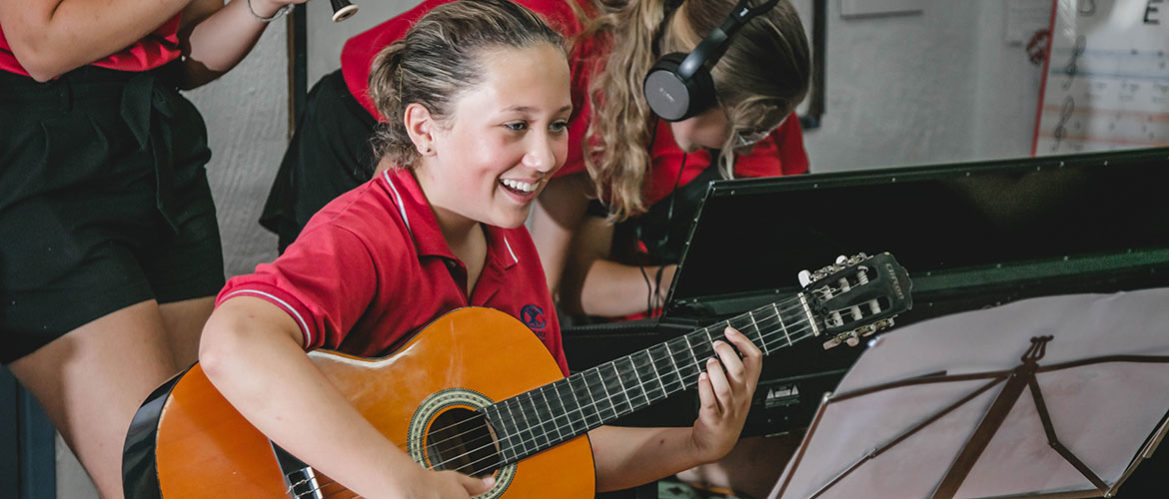Introduction
Following on from the foundations that the students have become familiar with at KS3, the GCSE course enables students to explore further their love for music and gain an even wider range of musical knowledge and understanding. From Bach to Queen and Star Wars to World Music there is something that will appeal to everyone’s musical taste.
Theory is looked into with more depth, but still in a fun and practical way (yes, the pizzas do still come out at GCSE to help students learn rhythmic notation!). The 8 set works give ample opportunity to look at music theory in practice and in context and this is often when students start to see the importance of their previous learning.
There is also time for students to explore their creative side, composing two pieces of music during the course. The exam board sets a brief for one of these, but the either one is left to the student to write music in their preferred style. Although it is imperative that students have lessons outside of school on an instrument (including vocals) or can play to a certain level, there is time set aside in the classroom to have a jamming session when possible!
Teaching
Students have 3 lessons a week at GCSE and are expected to participate in a club or group at school (see KS3 information for details). One of these usually focuses on music theory, but often based to the set work that we are studying at the time (and Tic Tacs always help music theory seem so much fun and accessible!). Another one is then usually dedicated to studying the set works and analysing pieces in detail. These include works by Bach, Beethoven, John Williams (Star Wars!), Queen and many more! We also read around the topic and delve into other music linked to the set genre.
The third lesson of the week is usually dedicated to compositional skills. This gives the students time to draw upon what they have learnt from studying the set works and apply this to creating their own music. Continual feedback allows the students to extend and develop their ideas and release the creativity within them! Some composing software is available on school tablets, but some prefer to use more technologically based software on their own devices.
Why study music at XIC?
Music gives students an opportunity to learn in a different way. Students have to be able to work efficiently as part of a team and also as an individual; they have to be perfectionists, yet realistic; they have to be able to present themselves in a way that they might not be familiar with. They also need to be dedicated and able to repeatedly conquer physical and mental challenges. In addition, music is therapeutic, giving opportunity for self-expression and relieving stress. Singing and playing instruments has been shown to not only increase the capacity of your memory but also to refine your time management and organisational skills. Furthermore, it improves coordination, reading and exposes us to cultural history.
Groups are often small giving students the opportunity to access more individualised learning drawing upon their strengths and working on their weaknesses in a nurturing environment. Although it is a challenging course, previous students have commented on how it has been a pleasure to study a subject in a less formal setting and relieve their stresses during our practical sessions!


